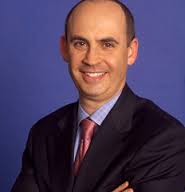A buoyant market for initial public offerings this year is providing much needed business for trading desks. Through the first three quarters of the year, companies raised $33 billion in 160 deals, according to Price Waterhouse Coopers. That compares with $35 billion in 108 deals in the same period in 2012. Despite the hoopla surrounding the gigantic Twitter IPO, most of the years deals have been small. Also, many are driven by the JOBS Act, which made it possible for so-called emerging growth companies-those with less than $1 billion in annual revenues-to raise capital with less fuss. Investment bank Cowen & Company has beena beneficiary of the JOBS Act and has participated in a number of the deals this year. The firms chief executive Jeffrey Solomon spoke this week at KBW Securities Brokerage & Market Structure Conference in New York. We excerpt some of his comments.

On Cowens participation in JOBS Act-driven IPOs:
Every one of the IPOs we’ve been on this year-with the exception of a few really large ones-were emerging growth companies.
On the traditional IPO process:
I spent most of my career investing in companies. Im a buyside guy. I always hated the new issue process. I generally got a call from a capital markets person. They were bringing a company. Maybe Id heard of it. Maybe I hadnt. Still, I had a lot of work to do to get ready for a meeting that was going to be only 30 minutes. Thats 20 minutes of management talking with 10 minutes left for questions. Then, 5 minutes after the meeting is over, a capital markets guy calls me on the phone and asks: Are you in or out? Im not a good buyer like that. I spend more time figuring out how to buy a car. That was the IPO market. Not a great dynamic.
On the changes to the process wrought by the JOBS Act:
There are three things the JOBS Act did that changed the tables for us. They are test-the-waters meetings, or taking companies out on the road and getting in front of investors before you do the public filing. Then, filing confidentially. Taking the negotiation with the regulators outside of the public view is such a critical element. Nobody really needs to see the back and forth between the company and the SEC to figure out whether or not its a good investment idea. Then, scaling back some of the Sarbanes compliance issues for a period of time. It brings the costs of being public down in the early critical years.
On the results:
Its music to the ears of most of the CEOs and venture capitalists I talk to. Theyre very happy with that dynamic. Youre seeing it play out in increased IPO activity.
On whether or not the boom is sustainable into 2014:
Its sustainable as long as the market is functioning. It doesnt have to be going higher, just functioning.




